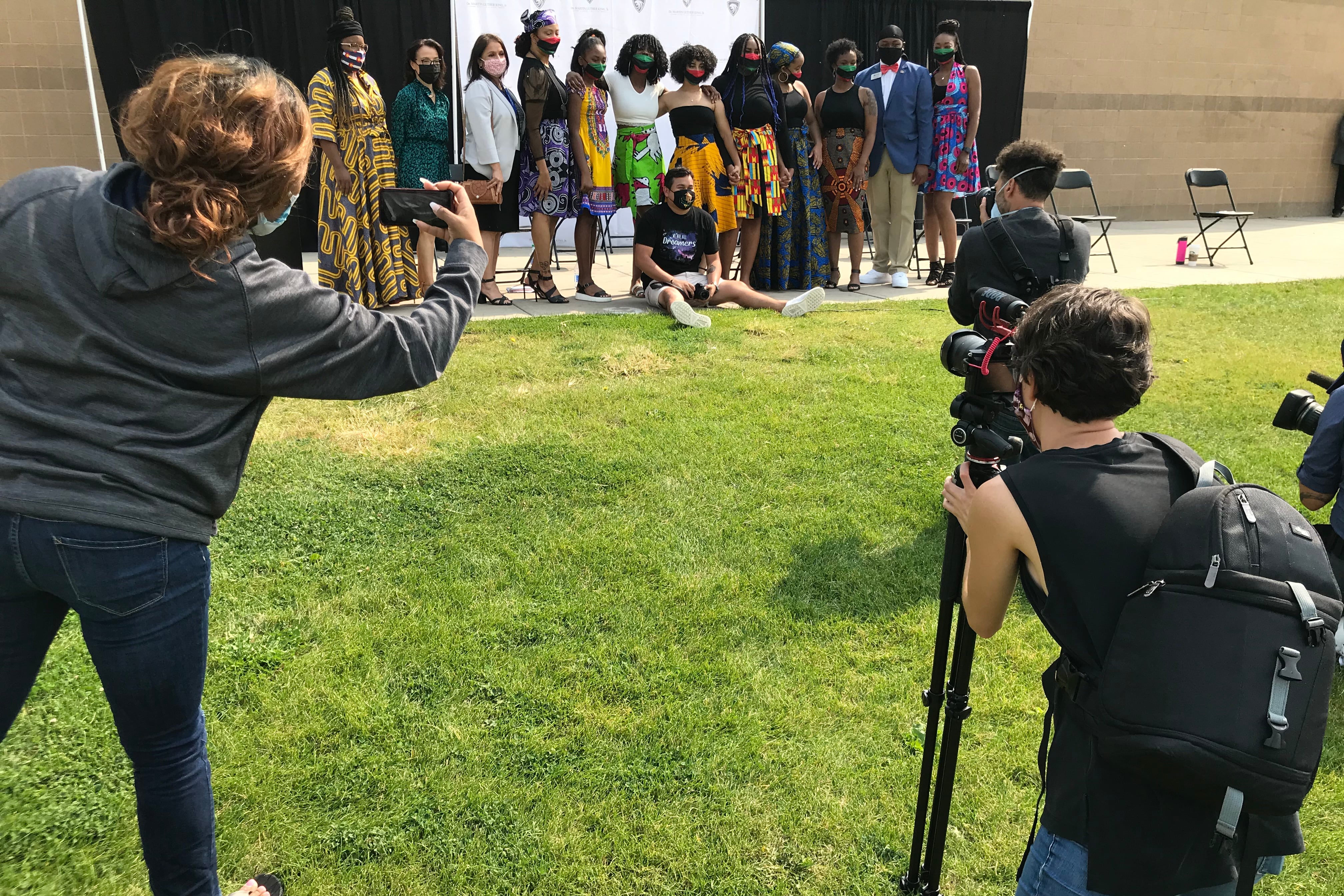On a school lawn in Denver Friday, four young Black women told the story of how they pushed an institution to make its curriculum more inclusive of Black, Latino, and Indigenous history.
It started last October, when a group of students from Dr. Martin Luther King, Jr. Early College traveled to Washington, D.C., to visit the national African American history museum.
“Just seeing all of our history forefront, not in a section in the back of a textbook ... it’s just so empowering,” said sophomore Kaliah Yizar. “Learning our history is the first step to awakening that thing in us that makes us want to be proud and brave and speak out.”
When the students got back to Denver, that’s exactly what they did. And 10 months later, they sat front and center as school board members announced their intention to pass a resolution to add the “comprehensive historical and contemporary contributions of Black, Indigenous, and Latino communities” to the curriculum from kindergarten to 12th grade.
It’s a process that’s already underway in Denver Public Schools, in part because district leaders recognize the need and in part because students and educators have repeatedly and publicly pointed out the shortcomings of curriculum taught through a white, European lens.
“As a graduate of the Denver Public Schools, I never saw myself in anything I read, and I became a teacher because I wanted to make sure that we can change that,” said Superintendent Susana Cordova, a former district teacher and principal.
The aim of the resolution is to codify the curriculum revisions, said school board Vice President Jennifer Bacon. The resolution is called “Know Justice, Know Peace” after a podcast the students started this summer during nationwide protests of racism and police brutality. The full school board is set to discuss and vote on the resolution next month.
The students emphasized why the changes are important. Though teachers at their own school have taken steps to make the history curriculum in particular more inclusive, the students want to see those same shifts happen at schools across the city.
“They’re always only showing the negative parts of Black history,” said senior Alana Mitchell. “There’s so many positives from music to education to art. And that’s never, ever shown. It’s only slavery and oppression.”
That can affect students’ mental health, senior Jenelle Nangah said. “It can be really detrimental to a kid’s mental space to not be able to see anything positive, especially when in society there is so much underrepresentation and misrepresentation of Black people,” she said.
Sophomore Dahni Austin said students of color are rarely taught about role models that look like them. “They don’t teach us about the kings and queens that happened before slavery,” she said.
“It’s so important to see yourself in that position,” Nangah said. “We want our generation to feel empowered, to feel like they can speak their minds, to feel like they can stand up for themselves, to feel like they can call out injustice when they see it.”





